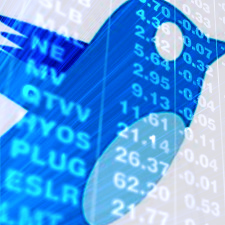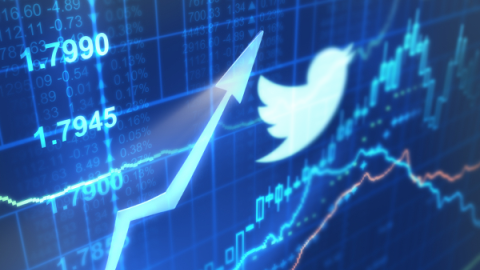World News – Twitter priced its stock at $26 per share for its highly anticipated IPO, setting the stage to start trading Thursday on the New York Stock Exchange.
 Earlier, underwriters involved with the Twitter initial public offering aimed to price the social network’s stock at $27, barring any last-minute hitches, according to three people familiar with the matter.
Earlier, underwriters involved with the Twitter initial public offering aimed to price the social network’s stock at $27, barring any last-minute hitches, according to three people familiar with the matter.
The estimated price range had been $23-$25 per share. With 70 million shares to be issued, the company will raise nearly $2 billion, valuing the company at $18.3 billion, fully diluted.
Twitter said in its Wednesday announcement, which it tweeted, that it has also granted underwriters a 30-day option to purchase up to 10.5 million additional shares of common stock.
“The fact that they started with a range, they were able to raise it and they were able to price it above the range means that there was unprecedented demand, lots of demand for this IPO and we’ll see how well they do tomorrow,” said Carol Roth, a former investment banker and author of the book “The Entrepreneur Equation,” on Wednesday evening after Twitter’s stock priced.
Goldman Sachs is the lead underwriter for the IPO, alongside JPMorgan Chase and Morgan Stanley.
The stock will trade under the symbol “TWTR” on the NYSE.
Twitter, which has never turned a profit in its seven years in existence, had originally set a price range of $17 to $20 per share for the IPO, but that was widely expected to go higher. Back in August, for example, the company priced some of its employee stock options at $20.62, based on an appraisal by an investment firm, and it’s unlikely to have lost value since.
Twitter’s public debut is the most eagerly anticipated IPO since Facebook’s in May 2012.
But Twitter has sought to cool expectations in the months and weeks leading up to the offering. With that, the San Francisco-based company is likely hoping its stock will avoid the fate of Facebook’s shares, which didn’t surpass their IPO price of $38 until more than a year after the offering.
Facebook’s public debut was marred by technical glitches on the Nasdaq Stock Exchange in May of 2012. As a result, the Securities and Exchange Commission fined Nasdaq $10 million, the largest ever levied against an exchange. Those problems likely led Twitter to the New York Stock Exchange.
Earlier on Wednesday, Barclays Capital said Twitter had hired it to be its “designated market maker,” a critical role when a stock starts trading. A DMM is an experienced trader who supervises the trading of a company’s stock on the NYSE. If technical problems arise, the NYSE uses DMMs to bypass electronic trading systems, allowing humans to trade a company’s stock. That is not possible on all-electronic stock exchanges such as the Nasdaq.
The social network that lets users send short messages, or “tweets,” in 140-character bursts has more than 230 million users, more than three-quarters of them outside the U.S.
The Associated Press contributed to this story.
Cadie Thompson, CNBC.com

